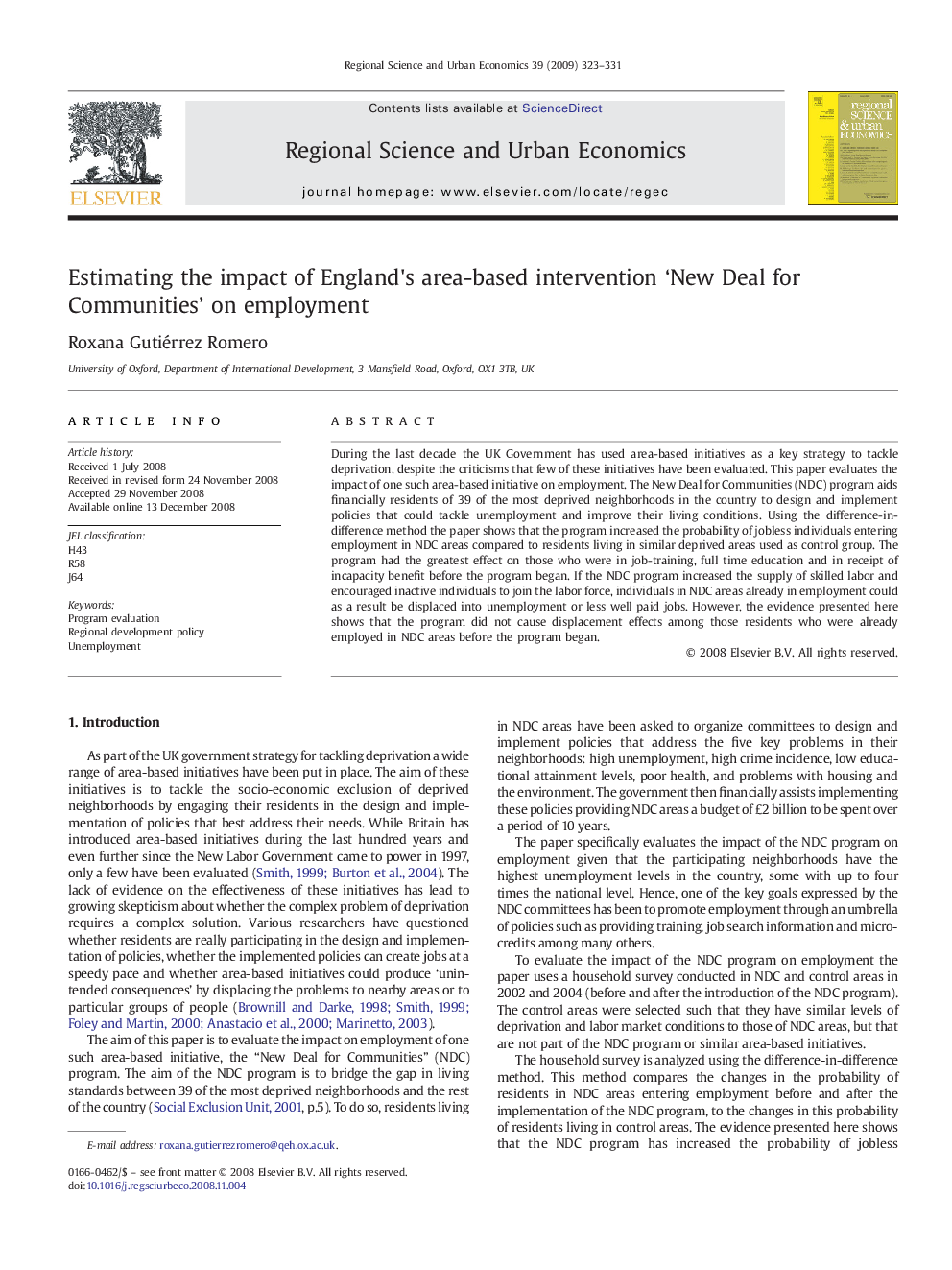| Article ID | Journal | Published Year | Pages | File Type |
|---|---|---|---|---|
| 983897 | Regional Science and Urban Economics | 2009 | 9 Pages |
During the last decade the UK Government has used area-based initiatives as a key strategy to tackle deprivation, despite the criticisms that few of these initiatives have been evaluated. This paper evaluates the impact of one such area-based initiative on employment. The New Deal for Communities (NDC) program aids financially residents of 39 of the most deprived neighborhoods in the country to design and implement policies that could tackle unemployment and improve their living conditions. Using the difference-in-difference method the paper shows that the program increased the probability of jobless individuals entering employment in NDC areas compared to residents living in similar deprived areas used as control group. The program had the greatest effect on those who were in job-training, full time education and in receipt of incapacity benefit before the program began. If the NDC program increased the supply of skilled labor and encouraged inactive individuals to join the labor force, individuals in NDC areas already in employment could as a result be displaced into unemployment or less well paid jobs. However, the evidence presented here shows that the program did not cause displacement effects among those residents who were already employed in NDC areas before the program began.
